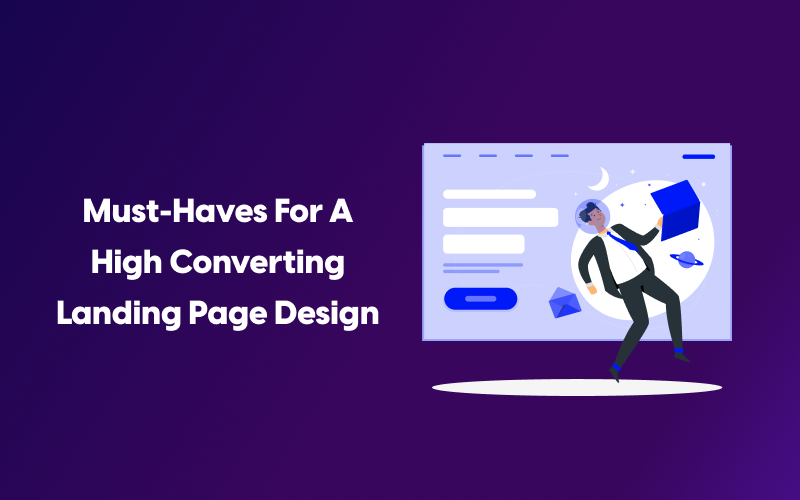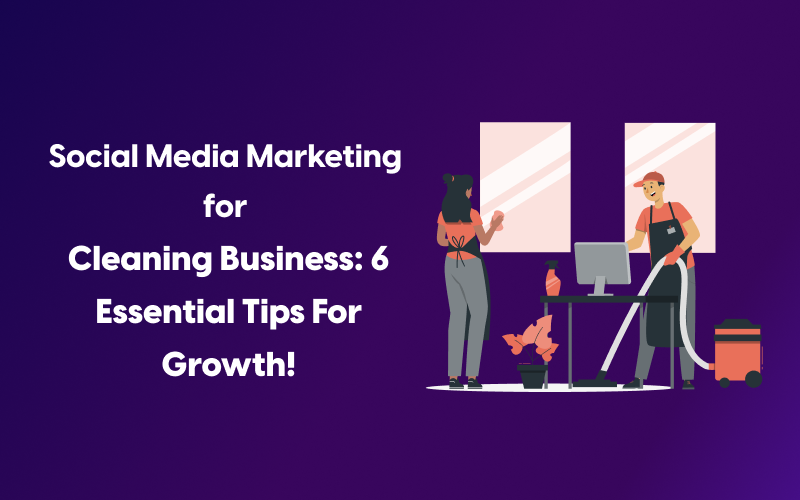In today’s dynamic landscape of event planning, where competition is intense and capturing attention is fleeting, event planners must seize every available opportunity to maximize their potential. Amidst a plethora of marketing strategies, one technique rises above the rest as a definitive game-changer: Pay-Per-Click (PPC) advertising.
Imagine unlocking the power to effortlessly attract a targeted audience, drive event registrations, and skyrocket your event’s success. PPC empowers event planners to take center stage, capturing the attention of eager attendees and leaving competitors in awe.
But why is PPC an absolute must-have in every event planner’s toolkit? Let us embark on a journey where creativity meets data-driven precision, where the perfect blend of compelling messaging and strategic optimization takes your event planning prowess to new heights.
Let’s Have a Look at the Event Planning Industry’s Statistics!
As event planners, it’s crucial to stay informed about the latest trends and updates shaping the industry. Here are some eye-opening statistics that shed light on the current landscape of the event planning industry:
- The events industry is projected to reach a staggering $1,552.9 billion by 2028, showcasing its remarkable growth potential. (Allied Market Research)
- The US party planning market is valued at $3.2 billion, highlighting the significant demand for organized celebrations. (Ibis World)
- Sponsoring is a top priority for 85% of marketers, emphasizing the value they see in aligning their brands with events. (Splash That)
- In 2022, the US was home to 7,426 trade show and conference planning companies, illustrating the vibrant and competitive nature of the industry. (Ibis World)
- An overwhelming 97% of media marketers consider in-person events crucial, underscoring the enduring impact and effectiveness of face-to-face gatherings. (Bizzabo)
- As digital platforms continue to thrive, 90% of Fortune 500 companies utilize more than one video platform, reflecting the shift towards virtual and hybrid event experiences. (UC Today)
- While progress is being made, there is still work to be done in terms of gender representation in speaking engagements, with 64% of event speakers in the US and Canada being men. (Bizzabo)
- In the US, there are 923,341 wedding services workers, showcasing the vast industry supporting couples in creating their dream weddings. (Ibis World)
- The cancellation costs of ten tech conferences alone surpassed $1.1 billion in 2020, highlighting the financial impact of unforeseen circumstances on large-scale events. (Data Connectors)
By keeping these statistics in mind, event planners can better understand the industry’s scope, challenges, and opportunities. As the landscape continues to evolve, staying informed and adaptable will be key to crafting successful events that captivate attendees and deliver exceptional experiences.
PPC for Event Planners: The Essential 8 Steps Guide to Ignite Event Success
Gone are the days of relying solely on word-of-mouth or traditional marketing channels. With PPC, event planners can strategically position their events in front of the right audience, captivating them with tailored messaging and irresistible calls to action. It’s time to revolutionize the way you approach event promotion.
Prepare to discover the art of crafting attention-grabbing ad copy, selecting the perfect keywords, and creating landing pages that inspire action. We’ll delve into the intricacies of choosing the ideal PPC for Event Planners’ platform, optimizing your campaigns for stellar performance, and even retargeting potential attendees who have shown interest.
Step 1: Define Your PPC Objectives and Budget
It’s crucial to define your PPC objectives and establish a suitable budget. By clearly outlining your goals for the PPC campaign, whether it’s boosting event registrations, increasing ticket sales, or enhancing brand awareness, you can unleash your event’s true potential and set a clear direction for your advertising efforts.
By clearly defining your objectives, you can customize your PPC for event planners’ strategies to achieve specific outcomes. For example, if your goal is to increase event registrations, you can concentrate on driving traffic to your registration page and optimizing your ad copy and landing pages to encourage conversions. Conversely, if your objective is to boost ticket sales, you can create campaigns that emphasize the unique selling points of your event, enticing potential attendees to make ticket purchases.
Alongside setting clear objectives, it’s essential to establish a realistic budget that aligns with your event goals. Allocating resources ensures that you maximize your impact while minimizing costs. By understanding your budgetary constraints and strategically allocating funds to your PPC activities, you can achieve a balance between reach and return on investment.
Step 2: Discover the Perfect Keywords
Keyword research is a vital step in understanding your target audience’s language and phrases when searching for events like yours. It involves using keyword research tools and platforms to explore a wide range of relevant keywords and phrases. Look beyond generic terms and delve into more specific long-tail keywords that can capture the intent and interests of your potential attendees.
Unearthing hidden opportunities involves identifying keywords with lower competition but high search volume. These keywords can provide a valuable avenue to reach an audience that your competitors may have overlooked. Targeting these untapped markets can increase your event’s visibility and attract a more engaged audience.
Additionally, analyzing competitor keywords and strategies can offer valuable insights and help you outsmart your competition. You can gain a competitive advantage by examining the keywords they are targeting, the ad copy they are using, and the landing pages they are directing visitors to. Identify the gaps and areas where your competitors may fall short, and refine your targeting and messaging to stand out.
Step 3: Craft an Irresistible Ad Copy
PPC for event planners involves crafting ad copy that is impossible to resist. The key is to create headlines that immediately capture attention and generate curiosity. Craft concise and impactful messages that highlight the unique elements of your event, whether it’s a lineup of captivating speakers, exclusive experiences, or groundbreaking content.
Equally important is the body of your ad copy. Clearly communicate your event’s value proposition and what makes it stand out. Utilize a persuasive language that evokes emotions and paints a vivid picture of an event they simply cannot afford to miss.
Strategic incorporation of relevant keywords is crucial in creating effective ad copy. By aligning your messaging with targeted keywords, you increase the ad’s relevance and improve its quality score, leading to better ad rankings and lower costs per click. Regularly test and refine your ad copy, experimenting with different variations such as calls-to-action, unique selling points, and ad formats.
Step 4: Design High-Converting Landing Pages
It’s time to focus on designing high-converting landing pages. These dedicated pages play a critical role in providing a seamless and persuasive experience for your audience, ensuring that the momentum generated by your PPC ads is maintained.
Your landing pages should align closely with your PPC ads to create a seamless journey. Maintain consistent branding, messaging, and visuals to ensure a cohesive experience for visitors. When users click on your ad, they should be instantly greeted by a landing page that delivers on the promises made in the ad copy, reinforcing their interest and motivating them to take the next step.
Step 5: Launch Powerful PPC Campaigns
Mastering PPC for event planners is all about launching powerful PPC campaigns that deliver exceptional results. First, choose the PPC platform that aligns with your campaign objectives and target audience. Platforms like Google Ads and Bing Ads offer robust advertising solutions with an extensive reach.
Consider the platform’s user base, ad formats, and targeting options. Once you’ve chosen the platform, it’s time to fine-tune your campaigns with laser-focused targeting. Take advantage of advanced targeting options provided by the platform, such as demographics, location, and interests.
For example, if you’re organizing a technology conference, you may want to target individuals with an interest in technology and related topics. This level of precision targeting helps increase the chances of attracting quality leads and maximizing the return on your PPC investment.
Step 6: Optimize for Stellar Performance
Optimization is an ongoing effort that requires constant tracking, analysis, and adaptation to achieve the best possible results.
Continuously monitor the performance of your campaigns by closely tracking key metrics. It includes metrics such as click-through rates (CTR), conversion rates, cost per click (CPC), and return on ad spend (ROAS). Regularly review these metrics to gain insights into campaign performance and identify areas that require improvement.
Analyze the data collected to uncover patterns, trends, and opportunities. Look for areas where your campaigns are performing exceptionally well and identify strategies that can be replicated or scaled up. Simultaneously, pinpoint areas where performance may be lacking and determine the factors contributing to subpar results. By diving into the data, you can identify actionable insights that will guide your optimization efforts.
Step 7: Experiment and Innovate
By pushing boundaries and staying ahead of the curve, you can unlock hidden potential and gain a competitive advantage in the dynamic landscape of event planning.
Conducting A/B tests is a powerful way to experiment with different elements of PPC for event planners’ campaigns. Test different ad variations, headlines, call-to-actions, landing page layouts, or targeting strategies. By comparing the performance of these variations, you can identify which approaches resonate best with your audience and drive higher conversions. A/B testing allows you to refine and optimize your campaigns based on data-driven insights, continuously improving their effectiveness.
In addition to experimentation, staying ahead of the curve and embracing innovation in the PPC space is crucial. Keep a close eye on industry trends, emerging technologies, and new PPC techniques. Stay informed about the latest updates and features offered by the PPC platforms you’re utilizing. By adopting new strategies and leveraging cutting-edge tools, you can gain a competitive edge and reach your target audience in more impactful ways.
Step 8: Re-engage and Convert
Implement dynamic retargeting to reach users who have previously interacted with your event. By placing a pixel or code snippet on your website, you can track and segment users based on their behavior. With this information, you can create personalized ads that reignite their interest and drive conversions. Dynamic remarketing allows you to show ads featuring specific events or offerings that users have shown interest in, providing a highly targeted and relevant experience.
Craft compelling remarketing campaigns that reinforce your event’s unique selling points. Remind potential attendees of the value they stand to gain by participating. Highlight key features, exclusive experiences, or notable speakers that set your event apart. By reinforcing the message and showcasing what makes your event exceptional, you can reignite their interest and increase the likelihood of conversions.
The Ending Note:
In conclusion, Pay-Per-Click (PPC) advertising has become an indispensable tool for event planners in today’s competitive landscape. However, mastering PPC for Event planners requires expertise, time, and resources. That’s where our prestigious Agency comes in. With our deep understanding of the event industry and our proven track record in delivering successful PPC campaigns, we are here to partner with you on your event planning journey.
Trust in our Agency to leverage the power of PPC and make your event stand out from the competition. Together, let’s take your event to new heights and create unforgettable experiences that leave a lasting impression.





